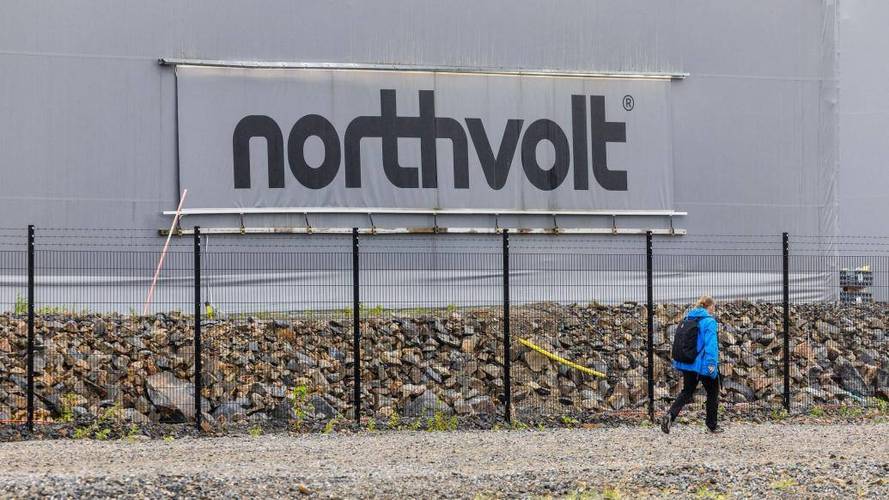
In the wave of global transformation to clean energy, the battery industry is undoubtedly a key track for all parties to compete. However, the battery giant Northvolt, which had been high hopes and boundless scenery of European capital, was reported to have formally submitted for bankruptcy protection, and the departure of the founder and chief executive officer added a tragic color to the fate of the company, which was like a bombshell and triggered a strong shock and deep thinking in the field of energy and business.
Northvolt's rise was once seen as a beacon of hope for Europe's independent battery industry. At that time, with Europe's deep heritage and strong pursuit of capital in the fields of automobile manufacturing and industrial technology, Northvolt was ambitious to plan the construction of large-scale battery production facilities to meet the urgent demand for high-performance batteries in Europe's growing electric vehicles and energy storage systems.
But now it is Mired in bankruptcy. In-depth analysis of the reasons, the first thing we have to mention is the fierce global market competition. Asian battery companies, especially the industry giants in China and South Korea, have already achieved significant first-mover advantages in battery technology research and development, production cost control, and production scale expansion. Through large-scale production and continuous technological innovation iterations, these companies continue to reduce the unit cost of batteries and improve product performance and quality. In contrast, Northvolt, despite European technical support and capital help, has always struggled to compete with Asian competitors in terms of cost control. At present, the price sensitivity of the electric vehicle market is extremely high, and the cost disadvantage has undoubtedly become a huge obstacle to its market expansion, leading to its gradual disadvantage in the competition for global market share.
In addition, supply chain problems have become Northvolt's Achilles heel. The key raw materials needed for battery production, such as lithium, cobalt, nickel, etc., are highly unevenly distributed globally and have volatile prices. With the advantages of long-term layout in the global resource market, Asian enterprises have established a relatively stable and cost controllable raw material supply chain system. Northvolt faces many challenges in the procurement of raw materials, not only to deal with high procurement costs, but also to worry about the stability of supply.
In addition, the speed of technology research and development and the efficiency of results conversion are also important factors that lead Northvolt to the brink of bankruptcy. In the era of rapid battery technology, the breakthrough and application of new technologies are crucial to the survival and development of enterprises. Although Northvolt invests a lot of money in research and development, it lags behind its Asian competitors in terms of the speed at which technological achievements are translated into actual productivity and products are commercialized. This makes it difficult for the battery products launched in the market to meet the increasing needs of customers in terms of performance, cost and innovation, and gradually lose their appeal in the market competition.
Northvolt's bankruptcy is a wake-up call for the European battery industry. It shows that in the global integration of the industrial pattern, even with the strong support of local capital and a deep industrial base, if you can not make breakthroughs in cost control, supply chain management and technological innovation and other core competitiveness, it is difficult to establish a foothold in the fierce international competition. For Europe, this incident may prompt it to re-examine the development strategy of the battery industry, strengthen industrial collaboration within the region, increase investment in key technology research and development and supply chain security, in order to enhance the competitiveness of the entire European battery industry.
At the same time, it also provides valuable lessons for battery industry players in other parts of the world. In the pursuit of the development of the battery industry, we can not only rely on the accumulation of capital and local technical advantages, but need to start from a global perspective to build a comprehensive, efficient and resilient industrial ecosystem. Whether it is the supply of raw materials, the continuous promotion of technological innovation, or the effective control of production costs, it needs overall planning and collaborative development. Only in this way can we move forward steadily in the fierce competition in the global battery industry, avoid repeating the mistakes of Northvolt, and contribute a solid force to the global clean energy transformation.

Below is the English translation of the text, with precise handling of political terms, consistent sentence structures, and preservation of the original’s analytical tone and logical flow:
Below is the English translation of the text, with precise …
On December 15 local time, Trump took the British Broadcast…
In recent years, the application of artificial intelligence…
According to Yahoo US media reports, the recent remarks of …
After 11 years of waiting in the deep sea, we finally have …
On December 17, 2025, the newly renovated American "Preside…